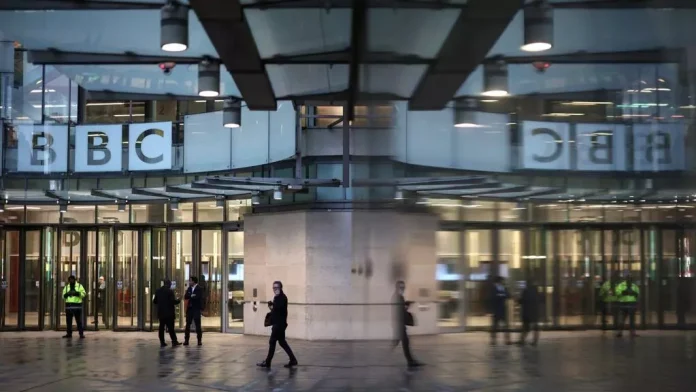The BBC is considering its response to Donald Trump’s $1 billion legal threat while defending its journalism amid internal divisions and leadership changes.
LONDON: The BBC is grappling with how to respond to US President Donald Trump’s threat of a $1 billion lawsuit over a misleading speech edit in a documentary.
Trump’s lawyers have given the broadcaster until Friday to “appropriately compensate” the president for “harm caused” or face legal action.
The controversy has already cost two senior executives their jobs and prompted an apology from the BBC for giving the impression that Trump directly urged “violent action” before the 2021 Capitol assault.
Outgoing director general Tim Davie defended BBC journalists while acknowledging “some mistakes that have cost us” during an internal meeting.
“We’ve got to fight for our journalism,” Davie said according to BBC News, adding that “these times are difficult for the BBC, but we will get through it.”
The legal threat has exposed tensions within the BBC’s leadership over coverage of sensitive issues including the Gaza war and trans rights.
BBC chair Samir Shah has publicly apologised for the Trump speech edit and vowed to reform oversight within the organisation.
Prime Minister Keir Starmer’s spokesman declined to comment on the legal matter but previously defended the BBC’s “vital role in an age of disinformation.”
The broadcaster faces accusations of bias from across the political spectrum as it prepares to renegotiate its Royal Charter due to expire in 2027.
Trump’s lawyers claim the Panorama documentary edit created a “false, defamatory, malicious, disparaging, and inflammatory” impression of his White House speech.
Media lawyer Matthew Gill told AFP the documentary would likely have had a “very small audience” in the United States, making it harder to prove harm to Trump.
BBC chair Shah confirmed the organisation was “considering how to reply” to Trump’s legal team.
“I do not know that yet, but he’s a litigious fellow, so we should be prepared for all outcomes,” Shah told BBC News. – AFP








